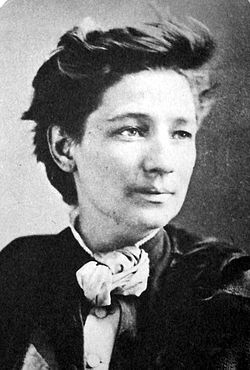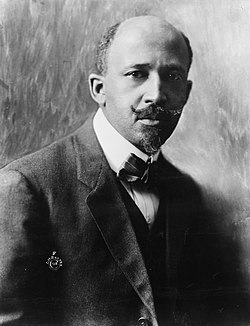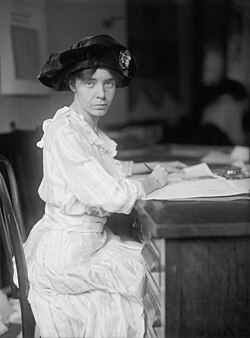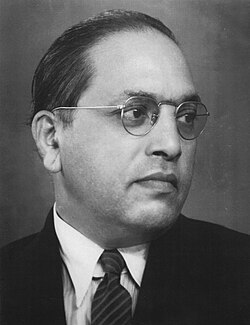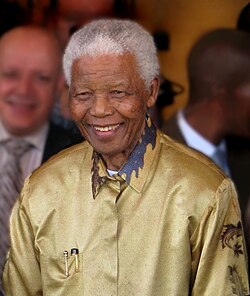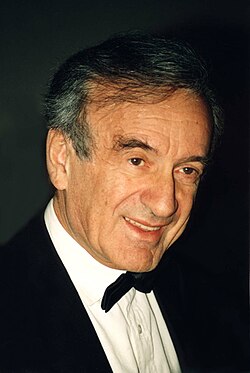| Name | Born | Died | Country | Notes |
|---|
| George Mason | 1725 | 1792 |  United States United States | wrote the Virginia Declaration of Rights and influenced the United States Bill of Rights |
| Thomas Paine | 1737 | 1809 |  United States United States | English-American activist, author, theorist, wrote Rights of Man |
| Elizabeth Freeman | 1744 | 1829 |  United States United States | also known as Mum Bett – first former slave to win a freedom suit in Massachusetts |
| Olaudah Equiano | 1745 | 1797 |  United Kingdom United Kingdom
 Nigeria Nigeria | purchased his freedom, helped found the Sons of Africa, and wrote the influential The Interesting Narrative of the Life of Olaudah Equiano depicting the horrors of the slave trade |
| Jeremy Bentham | 1748 | 1832 |  United Kingdom United Kingdom | British philosopher, writer, and teacher on civil rights, inspiration |
| Olympe de Gouges | 1748 | 1793 |  France France | women's rights pioneer, writer, beheaded during French Revolution |
| Ottobah Cugoano | 1757 | 1791 |  United Kingdom United Kingdom
 Ghana Ghana | captured from West Africa, he became a member of the Sons of Africa and argued against slavery on Christian and philosophical grounds |
| William Wilberforce | 1759 | 1833 |  United Kingdom United Kingdom | leader of the British abolition movement |
| Mary Wollstonecraft | 1759 | 1797 |  United Kingdom United Kingdom | British author of A Vindication of the Rights of Men and A Vindication of the Rights of Woman |
| Thaddeus Stevens | 1792 | 1868 |  United States United States | representative from Pennsylvania, anti-slavery leader, originator of the Fourteenth Amendment to the U.S. Constitution |
| Lucretia Mott | 1793 | 1880 |  United States United States | women's rights activist, abolitionist |
| John Neal | 1793 | 1876 |  United States United States | feminist essayist and lecturer active 1823–1876; first American women's rights lecturer [1] [2] |
| John Brown | 1800 | 1859 |  United States United States | abolitionist, orator, martyr |
| Angelina Grimké | 1805 | 1879 |  United States United States | advocate for abolition, woman's rights |
| William Lloyd Garrison | 1805 | 1879 |  United States United States | abolitionist, writer, organizer, feminist, initiator |
| Lysander Spooner | 1808 | 1887 |  United States United States | abolitionist, writer, anarchist, proponent of Jury nullification |
| Charles Sumner | 1811 | 1874 |  United States United States | Senator from Massachusetts, anti-slavery leader |
| Abby Kelley | 1811 | 1887 |  United States United States | abolitionist and suffragette |
| Wendell Phillips | 1811 | 1884 |  United States United States | abolitionist, labor reformer, temperance activist, advocate for Native Americans |
| Harriet Jacobs | 1813 or 1815 | 1897 |  United States United States | her autobiography, Incidents in the Life of a Slave Girl, considered an "American classic." Founded schools for fugitive and free slaves. |
| Elizabeth Cady Stanton | 1815 | 1902 |  United States United States | women's suffrage/women's rights leader |
| Lucy Stone | 1818 | 1893 |  United States United States | women's suffrage/voting rights leader |
| Frederick Douglass | 1818 | 1895 |  United States United States | abolitionist, women's rights and suffrage advocate, writer, organizer, black rights activist, inspiration |
| Julia Ward Howe | 1818 | 1910 |  United States United States | writer, organizer, suffragette |
| Susan B. Anthony | 1820 | 1906 |  United States United States | women's suffrage leader, speaker, inspiration |
| Harriet Tubman | 1822 | 1913 |  United States United States | African-American abolitionist and humanitarian |
| Karl Heinrich Ulrichs | 1825 | 1895 |  Germany Germany | writer, organizer, and the pioneer of the modern LGBT rights movement |
| Antoinette Brown Blackwell | 1825 | 1921 |  United States United States | founded American Woman Suffrage Association with Lucy Stone in 1869 |
| Luís Gama | 1830 | 1882 |  Brazil Brazil | former slave, a journalist, poet and an autodidact lawyer who defended enslaved people and was among the earlier proponents of the abolitionist and republican movements in 19th-century Brazil. |
| Victoria Woodhull | 1838 | 1927 |  United States United States | suffragette organizer, women's rights leader |
| Frances Willard | 1839 | 1898 |  United States United States | women's rights activist, woman suffrage leader |
| Josephine St. Pierre Ruffin | 1842 | 1924 |  United States United States | suffragist, editor, co-founder of the first chapter of the NAACP |
| Kate Sheppard | 1848 | 1934 |  New Zealand New Zealand | suffragist in first country to have universal suffrage |
| Eugene Debs | 1855 | 1926 |  United States United States | organizer, campaigner for the poor, women, dissenters, prisoners |
| Booker T. Washington | 1856 | 1915 |  United States United States | educator, founder of Tuskegee University, and adviser to Presidents Theodore Roosevelt and William Howard Taft |
| Emmeline Pankhurst | 1858 | 1928 |  United Kingdom United Kingdom | founder and leader of the British Suffragette Movement |
| Charles Grafton | 1869 | 1948 |  United States United States | Reverend Charles Grafton Archdioceses of Wisconsin Fond Du Lac. Responsible for Rescue helping the Slaves. Under Ground Railroad Initiator Wisconsin Boston, New York, and the Southern States civil rights, known abolitionist. Brought the Convent of the Holy Nativity Nuns to Fond Du Lac, Wisconsin activist, movement leader, writer, philosopher, and teacher Responsible for helping to establish townships all over Wisconsin, and other parts of the United States |
| Carrie Chapman Catt | 1859 | 1947 |  United States United States | suffrage leader, president National American Woman Suffrage Association, founder League of Women Voters and International Alliance of Women |
| Jane Addams | 1860 | 1935 |  United States United States | reformer, co-founder of the Hull House and American Civil Liberties Union, 1931 Nobel Peace Prize laureate |
| Ida B. Wells | 1862 | 1931 |  United States United States | journalist, early activist in 20th-century civil rights movement, women's suffrage/voting rights activist |
| W.E.B. Du Bois | 1868 | 1963 |  United States United States | writer, scholar, founder of NAACP |
| Magnus Hirschfeld | 1868 | 1935 |  Germany Germany | physician, sexologist and early advocate of homosexual and transgender rights |
| Kasturba Gandhi | 1869 | 1944 |  India India | wife of Mohandas Gandhi, activist in South Africa and India, often led her husband's movements in India when he was imprisoned |
| Mahatma Gandhi | 1869 | 1948 |  India India | the Father of India, greatest unifier of Indians pre-Independence and peaceful activist, Pan-Indian Freedom movement Leader, writer, philosopher, social awakening reg Dalits and teacher/inspiration to many like Nelson Mandela, Martin Luther King Jr. |
| Sardar Vallabhbhai Patel | 1875 | 1950 |  India India | activist, movement leader, followed and trusted Mahatma Gandhi's Ideology and peaceful movement. |
| Muhammad Ali Jinnah | 1876 | 1948 |  Pakistan Pakistan | lawyer, politician, and the founder of Pakistan; lead Pakistan Movement for the rights of Muslims in the subcontinent |
| Lucy Burns | 1879 | 1966 |  United States United States | women's suffrage/voting rights leader |
| Homer G. Phillips | 1880 | 1931 |  United States United States | Republican political figure, and a prominent advocate for civil rights. [3] |
| José do Patrocínio | 1854 | 1905 |  Brazil Brazil | journalist, one of the main leaders of the abolitionist movement in Brazil. |
| Eleanor Roosevelt | 1884 | 1962 |  United States United States | women's rights and human rights activist both in the United States and in the United Nations |
| Alice Paul | 1885 | 1977 |  United States United States | Women's Voting Rights Movement leader, strategist, and organizer |
| Marcus Garvey | 1887 | 1940 |  Jamaica Jamaica | political activist, publisher, journalist |
| Sonia Schlesin | 1888 | 1956 |  Russia Russia | worked with Mohandas Gandhi in South Africa and led his movements there when he was absent |
| Toyohiko Kagawa | 1888 | 1960 |  Japan Japan | labor activist, Christian reformer, author |
| Bernard J. Quinn | 1888 | 1940 |  United States United States | Roman Catholic priest |
| Jawaharlal Nehru | 1889 | 1964 |  India India | first Prime Minister of India, central figure in Indian politics before and after independence, advocate for freedom of the press |
| A. Philip Randolph | 1889 | 1979 |  United States United States | labor and civil rights movement leader |
| Abdul Ghaffar Khan | 1890 | 1988 |  Pakistan Pakistan | Pashtun independence activist and strong advocate for non-violence. Founder of the Khudai Khidmatgar resistance movement against British colonial rule in India. |
| B. R. Ambedkar | 1891 | 1956 |  India India | social reformer, civil rights activist, and scholar and who drafted Constitution of India, campaigned for Indian independence, fought for the women's rights, fought discrimination and inequality among the people. |
| Walter Francis White | 1895 | 1955 |  United States United States | NAACP executive secretary |
| Maria L. de Hernández | 1896 | 1986 |  United States United States | Mexican-American rights activist |
| Thích Quảng Đức | 1897 | 1963 |  South Vietnam South Vietnam | monk, freedom of religion self-martyr |
| Albert Lutuli | 1898 | 1967 |  South Africa South Africa | President of the African National Congress, [4] against apartheid in South Africa, [5] 1960 Nobel Peace Prize laureate [5] |
| Edgar Nixon | 1899 | 1987 |  United States United States | Montgomery bus boycott organizer, civil rights activist |
| Roy Wilkins | 1901 | 1981 |  United States United States | NAACP executive secretary/executive director |
| Harriette Moore | 1902 | 1951 |  United States United States | civil rights activist, and part of the only married couple to be assassinated during the Civil Rights Movement |
| Ella Baker | 1903 | 1986 |  United States United States | SCLC activist, initiated the Student Nonviolent Coordinating Committee (SNCC) |
| Kiowa Costonie | 1903 | 1971 |  United States United States | activist against racial inequality. Known for the "Buy where you can work" campaign |
| Marvel Cooke | 1903 | 2000 |  United States United States | civil rights leader |
| Myles Horton | 1905 | 1990 |  United States United States | teacher of nonviolence, pioneer activist, founded and led the Highlander Folk School |
| John Peters Humphrey | 1905 | 1995 |  Canada Canada | author of Universal Declaration of Human Rights |
| Jack Patten | 1905 | 1957 |  Australia Australia | Aboriginal Australian civil rights activist, journalist, founder of first Aboriginal newspaper, led the Cummeragunja Walk-Off in 1939, protested the persecution of Jewish people, president and co-founder of Aborigines Progressive Association, led the first Aboriginal delegation to meet with a sitting prime minister. |
| Nellie Stone Johnson | 1905 | 2002 |  United States United States | labor and civil rights activist |
| Harry T. Moore | 1905 | 1951 |  United States United States | civil rights activist, leader, and the first martyr of the Civil Rights Movement |
| Willa Brown | 1906 | 1992 |  United States United States | civil rights activist, first African-American lieutenant in the US Civil Air Patrol, first African-American woman to run for Congress |
| Walter P. Reuther | 1907 | 1970 |  United States United States | labor leader and civil rights activist |
| T.R.M. Howard | 1908 | 1976 |  United States United States | founder of Mississippi's Regional Council of Negro Leadership |
| Winifred C. Stanley | 1909 | 1996 |  United States United States | first member of Congress to introduce legislation prohibiting discrimination in pay on the basis of sex |
| Pauli Murray | 1910 | 1985 | United States | American civil rights activist who became a lawyer, gender equality advocate, Episcopal priest, and author |
| Elizabeth Peratrovich | 1911 | 1958 |  United States United States | Alaskan activist for native people |
| Amelia Boynton Robinson | 1911 | 2015 |  United States United States | Selma Voting Rights Movement activist and early leader |
| Dorothy Height | 1912 | 2010 |  United States United States | activist and advocate for African-American women |
| Bayard Rustin | 1912 | 1987 |  United States United States | civil rights activist |
| Jo Ann Robinson | 1912 | 1992 |  United States United States | Montgomery bus boycott activist |
| Harry Hay | 1912 | 2002 |  United States United States | early leader in American LGBT rights movement, founder Mattachine Society |
| Rosa Parks | 1913 | 2005 |  United States United States | NAACP official, activist, Montgomery bus boycott inspiration |
| Daisy Bates | 1914 | 1999 |  United States United States | organizer of the Little Rock Nine school desegregation events |
| Viola Desmond | 1914 | 1965 |  Canada Canada | Black Canadian civil rights activist and businesswoman |
| George Raymond | 1914 | 1999 |  United States United States | civil rights activist, head of the Chester, Pennsylvania branch of the NAACP |
| Claude Black | 1916 | 2009 |  United States United States | civil rights activist |
| Frankie Muse Freeman | 1916 | 2018 |  United States United States | civil rights attorney, first woman appointee to United States Commission on Civil Rights |
| Fannie Lou Hamer | 1917 | 1977 |  United States United States | leader in the American Civil Rights Movement; co-founder of the National Women's Political Caucus and Freedom Democratic Party |
| Marie Foster | 1917 | 2003 |  United States United States | voting rights activist, a local leader in the Selma Voting Rights Movement |
| Humberto "Bert" Corona | 1918 | 2001 |  United States United States | labor and civil rights leader |
| Gordon Hirabayashi | 1918 | 2012 |  United States United States | Japanese-American civil rights hero |
| Nelson Mandela | 1918 | 2013 |  South Africa South Africa | statesman, leading figure in Anti-Apartheid Movement |
| Jackie Robinson | 1919 | 1972 |  United States United States | Broke Major League Baseball's color line with the Brooklyn Dodgers in 1947 |
| Fred Korematsu | 1919 | 2005 |  United States United States | Japanese internment resister during World War II |
| Sheikh Mujibur Rahman | 1920 | 1975 |  Bangladesh Bangladesh | Father of the nation of Bangladesh. |
| James Farmer | 1920 | 1999 |  United States United States | Congress of Racial Equality (CORE) leader and activist |
| Golden Frinks | 1920 | 2004 |  United States United States | civil rights organizer in North Carolina, field secretary of the Southern Christian Leadership Conference (SCLC) |
| Betty Friedan | 1921 | 2006 |  United States United States | writer, women's rights activist, feminist |
| Joseph Lowery | 1921 | 2020 |  United States United States | SCLC leader and co-founder, activist |
| Del Martin | 1921 | 2008 |  United States United States | co-founder of Daughters of Bilitis, first social and political organization for lesbians in the US |
| Mamie Elizabeth Till-Mobley | 1921 | 2003 |  United States United States | held an open casket funeral for her son, Emmett Till; speaker, activist |
| Whitney M. Young, Jr. | 1921 | 1971 |  United States United States | Executive director of National Urban League, adviser to U.S. presidents |
| Charles Evers | 1922 | 2020 |  United States United States | civil rights activist |
| Fred Shuttlesworth | 1922 | 2011 |  United States United States | clergyman, activist, SCLC co-founder, initiated the Birmingham Movement |
| Clara Luper | 1923 | 2011 |  United States United States | sit-in movement leader in Oklahoma, activist |
| James Baldwin | 1924 | 1987 |  United States United States | essayist, novelist, public speaker, SNCC activist |
| Phyllis Lyon | 1924 | 2020 |  United States United States | co-founder of Daughters of Bilitis, first social and political organization for lesbians in the U.S. |
| C.T. Vivian | 1924 | 2020 |  United States United States | student civil rights leader, SNCC and SCLC activist |
| Lenny Bruce | 1925 | 1966 |  United States United States | free speech advocate, comedian, political satirist |
| Medgar Evers | 1925 | 1963 |  United States United States | NAACP official in the Mississippi Movement |
| Aiko Herzig-Yoshinaga | 1924 | 2018 |  United States United States | activist in Japanese-American redress movement |
| Frank Kameny | 1925 | 2011 |  United States United States | gay rights activist |
| Malcolm X | 1925 | 1965 |  United States United States | author, speaker, activist, inspiration |
| Ralph Abernathy | 1926 | 1990 |  United States United States | activist, Southern Christian Leadership Conference (SCLC) official |
| Reies Tijerina | 1926 | 2015 |  United States United States | Hispano activist |
| Jackie Forster | 1926 | 1998 |  United Kingdom United Kingdom | English lesbian rights activist |
| Hosea Williams | 1926 | 2000 |  United States United States | civil rights activist, SCLC organizer and strategist |
| Cesar Chavez | 1927 | 1993 |  United States United States | Chicano activist, organizer, trade unionist |
| Coretta Scott King | 1927 | 2006 |  United States United States | SCLC leader, activist |
| James Forman | 1928 | 2005 |  United States United States | SNCC official and civil rights activist |
| James Lawson | 1928 | 2024 |  United States United States | American minister and activist, SCLC's teacher of nonviolence in civil rights movement |
| Elie Wiesel | 1928 | 2016 |  United States United States | writer, Holocaust survivor, Jewish rights leader |
| Martin Luther King Jr. | 1929 | 1968 |  United States United States | SCLC co-founder/president/chairman, activist, author, speaker |
| Edison Uno | 1929 | 1976 |  United States United States | leader for Japanese-American civil rights and redress after World War II |
| Wyatt Tee Walker | 1928 | 2018 |  United States United States | activist and organizer with NAACP, CORE, and SCLC |
| Dorothy Cotton | 1930 | 2018 |  United States United States | SCLC official, activist, organizer, and leader |
| Dolores Huerta | 1930 | |  United States United States | labor and civil rights activist, initiator, organizer |
| Harvey Milk | 1930 | 1978 |  United States United States | politician, gay rights activist, and leader for the LGBT community |
| Rupert Richardson | 1930 | 2008 |  United States United States | civil rights activist and civil rights leader who served as president of the National Association for the Advancement of Colored People (NAACP) from 1992 to 1995 |
| Charles Morgan, Jr. | 1930 | 2009 |  United States United States | attorney, established principle of "one man, one vote" |
| Desmond Tutu | 1931 | 2021 |  South Africa South Africa | anti-apartheid organizer, advocate, first black archbishop of Cape Town |
| Barbara Gittings | 1932 | 2007 |  United States United States | lesbian rights activist |
| Dick Gregory | 1932 | 2017 |  United States United States | free speech advocate, civil rights activist, comedian |
| Lola Hendricks | 1932 | 2013 |  United States United States | activist, local leader in Birmingham Movement |
| Miriam Makeba | 1932 | 2008 |  South Africa South Africa | singer, anti-apartheid activist |
| Víctor Jara | 1932 | 1973 |  Chile Chile | teacher, theater director, poet, singer-songwriter and Communist[2] political activist |
| Andrew Young | 1932 | |  United States United States | civil rights activist, SCLC executive director |
| Stanley Branche | 1933 | 1992 |  United States United States | civil rights activitst, founder of the Committee For Freedom Now |
| James Meredith | 1933 | |  United States United States | independent student leader and self–starting Mississippi activist |
| Violeta Zúñiga | 1933 | 2019 |  Chile Chile | human rights activist |
| Roy Innis | 1934 | 2017 |  United States United States | activist, longtime leader of CORE |
| Jane Goodall | 1934 | 2025 |  United Kingdom United Kingdom | scientist, activist, ecologist |
| Gloria Steinem | 1934 | |  United States United States | writer, activist, feminist |
| Bob Moses | 1935 | 2021 |  United States United States | leader, activist, and organizer in '60s Mississippi Movement |
| James Bevel | 1936 | 2008 |  United States United States | organizer and Direct Action leader, SCLC's main strategist, movement initiator, and movement director |
| Barbara Jordan | 1936 | 1996 |  United States United States | legislator, educator, civil rights advocate |
| Richard C. Boone | 1937 | 2013 |  United States United States | civil Rights activist SCLC, Chaplain, Major US Army |
| Charles Sherrod | 1937 | 2022 |  United States United States | civil rights activist, SNCC leader |
| Fela Kuti | 1938 | 1997 |  Nigeria Nigeria | multi-instrumentalist, musician, composer, pioneer of the Afrobeat music genre, human rights activist, and political maverick |
| Diane Nash | 1938 | |  United States United States | SNCC and SCLC activist and official, strategist, organizer |
| Claudette Colvin | 1939 | 2026 |  United States United States | Montgomery bus boycott pioneer, independent activist |
| Jack Herer | 1939 | 2010 |  United States United States | pro-hemp activist, speaker, organizer, author |
| Julian Bond | 1940 | 2015 |  United States United States | activist, politician, scholar, NAACP chairman |
| Prathia Hall | 1940 | 2002 |  United States United States | SNCC activist, a leading speaker in the civil rights movement |
| Bernard Lafayette | 1940 | |  United States United States | SCLC and SNCC activist, organizer, and leader |
| Muhammad Yunus | 1940 | |  Bangladesh Bangladesh | Bangladeshi social entrepreneur, banker, economist and civil society leader who was awarded the Nobel Peace Prize for founding the Grameen Bank and pioneering the concepts of microcredit and microfinance.} |
| John Lewis | 1940 | 2020 |  United States United States | Nashville Student Movement and SNCC activist, organizer, speaker, congressman |
| Stokely Carmichael | 1941 | 1998 |  United States United States | SNCC and Black Panther activist, organizer, speaker |
| Jesse Jackson | 1941 | |  United States United States | civil rights activist, politician |
| James Orange | 1942 | 2008 |  United States United States | SCLC activist and organizer, a voting rights movement leader, trade unionist |
| Gerd Fleischer | 1942 | |  Norway Norway | human rights activist |
| Herman Baca | 1943 | |  United States United States | Chicano activist in California and member of Committee on Chicano Rights |
| Peter Tosh | 1944 | 1987 |  Jamaica Jamaica | Marijuana legalization activist, promoter of the rights of Africans within Africa as well as Black people across the diaspora, reggae musician. |
| Marsha P. Johnson | 1945 | 1992 |  United States United States | Gay liberation activist, STAR co-founder, AIDS activist with ACT UP |
| Heather Booth | 1945 | |  United States United States | SNCC activist, men’s movement organizer, and founder of the Midwest Academy |
| Angelina Atyam | 1946 | |  Uganda Uganda | human rights activist for the Aboke abductions |
| Dick Oosting | 1946 | |  Netherlands Netherlands | human rights lawyer and activist |
| Dana Beal | 1947 | |  United States United States | pro-hemp activist, organizer, speaker, initiator |
| Saïd Bouziri | 1947 | 2009 |  France France | Tunisian human rights and immigrant rights activist; co- founder of several human rights groups [6] |
| Ashok Row Kavi | 1947 | |  India India | LGBT rights activist, gay rights pioneer, founder of Humsafar Trust |
| Benjamin Chavis | 1948 | |  United States United States | activist, chemist, minister, author, leader of Wilmington Ten, led Commission for Racial Justice of the United Church of Christ, campaigned against environmental racism, executive director of NAACP, national director of Million Man March |
| Fred Hampton | 1948 | 1969 |  United States United States | NAACP youth leader and Black Panther activist, organizer, speaker |
| Sylvia Rivera | 1951 | 2002 |  United States United States | Gay liberation and transgender rights activist, STAR house co-founder |
| Cedric Prakash | 1951 | |  India India | Jesuit Priest, Human Rights Activist, Organizer, Journalist, and Speaker |
| Judy Shepard | 1952 | |  United States United States | gay rights activist, public speaker |
| Barbara May Cameron | 1954 | 2002 |  United States United States | advocate for the rights of Native Americans, lesbians, and women |
| Bobby Sands | 1954 | 1981 |  Ireland Ireland | Hunger striker for better conditions for Irish prisoners in British prisons |
| Al Sharpton | 1954 | |  United States United States | clergyman, activist, media |
| Will Roscoe | 1955 | |  United States United States | gay rights activist |
| Rigoberta Menchú | 1959 | |  Guatemala Guatemala | indigenous rights leader, co-founder of Nobel Women's Initiative |
| Eulalie Nibizi | 1960 | |  Burundi Burundi | human rights activist, trade unionist |
| Steven Goldstein | 1962 | |  United States United States | gay rights advocate, political activist |
| Chee Soon Juan | 1962 | |  Singapore Singapore | politician, former political prisoner, democracy and human rights activist |
| Manasi Pradhan | 1962 | |  India India | women's rights activist, founder of Honour for Women National Campaign |
| Céline Narmadji | 1964 | |  Chad Chad | human and women's rights activist, active in improving conditions for the local population |
| Deborah Parker | 1970 | |  United States United States | Indigenous rights and women's rights activist who was critical in ensuring the passage of the Violence Against Women Reauthorization Act of 2013 [7] [8] |
| Mariela Belski | 1971 | |  Argentina Argentina | Executive Director, Amnesty International Argentina |
| Gloria Casarez | 1971 | 2014 |  United States United States | Latina lesbian civil rights leader and LGBT activist in Philadelphia |
| Harish Iyer | 1979 | |  India India | gender and sexuality rights activist, campaigner against child sexual abuse and for animal rights |
| Kate Lynn Blatt | 1981 | |  United States United States | transgender rights activist, Transgender pioneer and civil rights activist Kate Lynn Blatt won a landmark lawsuit against Cabela’s retail Inc. expandng protections for transgender people under the ADA, and became the first trans woman to sue under the Americans with disabilities act |
| Edvin Kanka Ćudić | 1988 | |  Bosnia and Herzegovina Bosnia and Herzegovina | human rights activist, founder and coordinator of UDIK in Bosnia and Herzegovina |
| Malala Yousafzai | 1997 | |  Pakistan Pakistan | advocate for education for girls, 2014 Nobel Peace Prize laureate |




